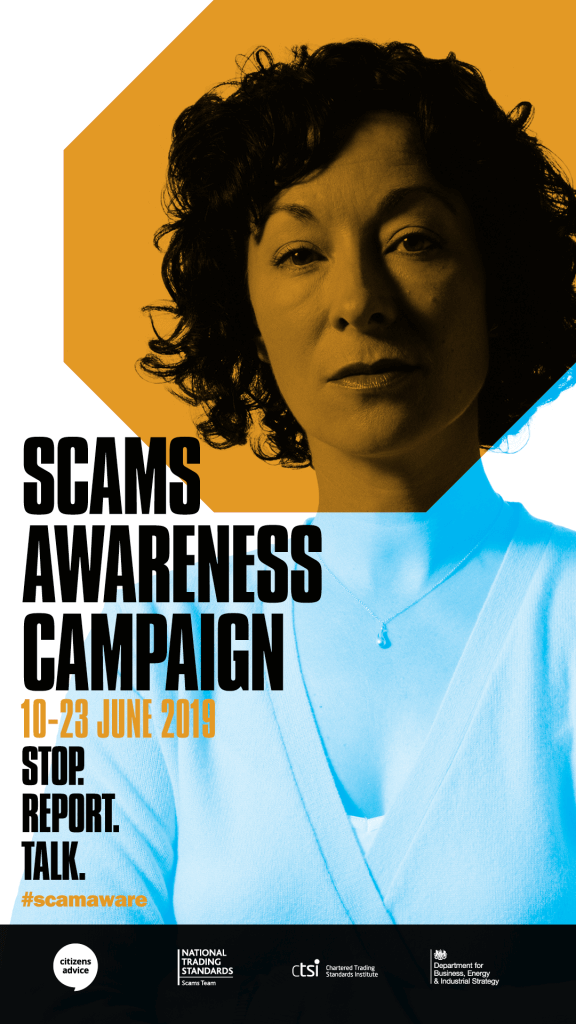Citizens Advice has found that less than half (46%) of people targeted by scams in the South East went on to report them. Worryingly, more than 64% of people in South East region have been approached by a scammer in the last two years.
In June, as part of as part of Scams Awareness Month, a national campaign encouraging people to report and talk about scams, and under the slogan “Stop, report, talk: Be #scamaware”, Citizens Advice in West Sussex (North, South, East) and Trading Standards are encouraging people to talk about their experiences and look out for others, particularly more vulnerable people.
We will be running four information stands to let local people know the signs to look out for, how to avoid and report scams, and how to look out for others, particularly people who may be vulnerable:
The Shoreham Centre, Shoreham-by-Sea: Monday 10th June, 10am-2pm
Tesco Superstore, Burgess Hill: Tuesday 18th June, 11am-1pm
Sainsbury’s, Haywards Heath: Thursday 20th June, 11am-1pm
Crawley Festival, Memorial Gardens: Saturday 22nd June, 12pm-5pm
More than half of all scams reported to the Citizens Advice consumer service in the last year used well-established, offline methods. These classic tactics from the scammers’ playbook include unsolicited doorstep selling, mail and cold calling, and saw people lose an average of almost £3,000.
Fraudsters using these methods are known to overwhelmingly target older, more vulnerable people.
Julie Martin, Chief Executive Officer of Citizens Advice in West Sussex (North, South, East) said:
“‘Stop, report, talk: Be #scamaware’ is our message to people in Mid Sussex. We’re finding that although many people have come into contact with scammers, very few people are speaking up about this issue. People can sometimes feel foolish or embarrassed reporting their experiences, but sadly this means perpetrators are getting away scot-free.”
“In reality, all of us can have the bad luck of being targeted with a scam. We hope this Scams Awareness campaign will encourage people to share their stories and learn tips to stop scammers from running off with people’s money.”
To help stop more people being fleeced by these types of scams, we’re sharing the following tips on how to spot them.
If you’re worried that someone you know has become victim to a scam, look out for the following. Are they:
- Receiving more mail than usual?
- Receiving unsolicited calls or spending more time on the phone?
- Struggling with money or have they withdrawn large amounts of cash recently?
If you think someone you know is being scammed, take the following steps:
- If you’re worried about telephone scams look into installing a call blocker
- Encourage them to tell their bank immediately if there is any suspicious activity or transactions from their account or credit cards
- Report the scam to the Citizens Advice Consumer Service online or by phone on 03454 04 05 06. They will give you advice on what to do next and report the scam to Trading Standards
- Report the scam to Action Fraud on 0300 123 2040
- If they’re struggling to pay bills or outstanding debts encourage them to visit their local Citizens Advice
You can also take the following steps to safeguard yourself and others:
- Be suspicious if you’re contacted out of the blue, even if it’s from a name you recognise
- If it sounds too good to be true it probably is
- Never send money to someone you’ve never met
- Never give out your bank details unless you are certain you can trust the person contacting you
- Don’t be rushed – you never need to make a decision straight away and if you feel pressured say “no”
- Suspect a scam? Hang up, wait five minutes to clear the line or use another phone to call
- Don’t suffer in silence – speak out about scams

